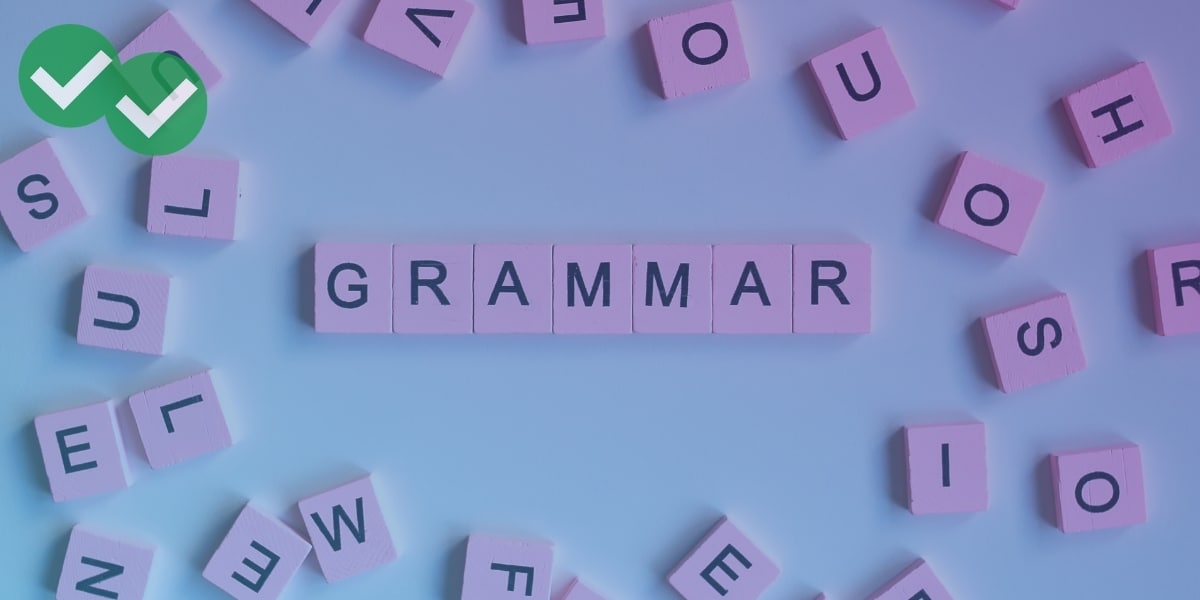
Your grammar will be assessed on the Speaking exam, as indicated by the Grammatical Range category on the official IELTS Speaking rubric (see the end of this post for our guides to the other categories).
How to Score Well on Grammatical Range for IELTS Speaking
To score well on this aspect of the IELTS Speaking band descriptors, you should try to use a wide range of grammatical constructions appropriately and accurately. Keep in mind that your grammatical range score is not simply about avoiding grammar mistakes. Limiting errors is important. However, you can only reach a very high band score if you can also demonstrate that you have mastered complex sentence structures, verb tenses, and other advanced grammatical features.
If your grammar skills are limited, or you have a lot of grammar mistakes when you speak, it is especially important that you record yourself when you answer practice questions. Listen for errors that you make regularly and think about how you can fix them. Get feedback on your grammar from a native English speaker if at all possible. If you have enough time before your exam (a few months or more), consider taking a class or investing in a good grammar book for self-study.
What are the most important speaking skills to practice for Grammatical Range?
The official rubric for IELTS Speaking includes numerous bullet points that describe Grammatical Range and Accuracy at different band levels. These points can be summarized into two main points: using a good variety of grammatical forms, and using grammar with minimal error. Below, I’ll talk about these points in greater depth, giving tips and examples.
Using a Range of Grammatical Structures
Do you use a wide range of grammatical structures, including grammatical forms that are considered “advanced?”
Low-scoring responses for grammatical range and accuracy can have a variety of issues. Assess your recorded responses. Do you notice either of the following patterns?
- Relying mainly on simple sentence patterns (subject + verb).
- Overusing the BE verb as the main verb of a sentence (am, is, are, was, were). It is not incorrect or necessarily bad to use BE as a main verb. Even non-native speakers tend to overuse it. However, it does lead to a lot of repetition, and actively trying to limit BE verb use can be a fantastic language development exercise. BE is very limiting as a main verb for several reasons. Not only do you lose the descriptive possibilities of other verbs, but sentences also tend to follow one pattern: Subject / complement. Furthermore, overuse of BE does not permit adverb or adverbial phrases/clauses, leading to an overreliance on nouns and adjectives for description.
High-scoring responses for grammatical range and accuracy use a wide range of sentence patterns and grammatical structures accurately and appropriately. There are a lot of word types and structures to master. As you work on your improving your performance on the IELTS Speaking rubric, evaluate how well you use structures like these with ease:
- Connectors like transition words/phrases
- Coordination
- Subordination
- Gerund subjects
- Passive voice
- Noun, adverb, adjective clauses
- Modal verbs
- Irregular verbs
- Transitive vs. intransitive verbs
- Pronouns
- Verb tenses
The important thing here is to evaluate, rather than spend a lot of time studying, each area. When studying for IELTS, it’s not a good idea to spend a significant amount of time studying tenses that occur rarely in the course of regular interactions, like past perfect progressive or even future perfect. It is a much better use of time reviewing the complexities of the most common verb tenses. Not sure what those are? Here’s a quick refresher:
- Simple present
- Simple past
- Present continuous
- Present perfect
- Past continuous
- Future simple
- Future continuous
Learn more in our complete guide to the 12 English verb tenses.
Avoiding Frequent Grammar Errors
Do you make frequent grammar errors when you speak?
Low-scoring responses for grammatical range and accuracy make consistent “systematic” errors. These are errors that reveal you’re having problems with a particular feature of English grammar–let’s say adjective clauses or verb tenses. In other words, they are repeated errors in the same grammatical errors.
High-scoring responses for grammatical range and accuracy can have occasional grammar mistakes! Making a few mistakes doesn’t mean that you can’t still score very high for grammar in the speaking section. However, the mistakes should be isolated, not revealing general gaps in your grammar.
What are the other IELTS Speaking rubric categories?
In addition to Grammatical Range and Accuracy, the official IELTS Speaking rubric also calculates scores based on fluency, pronunciation, and lexical resource (word use). Here are our tutorials for those other three aspects of the rubric:





